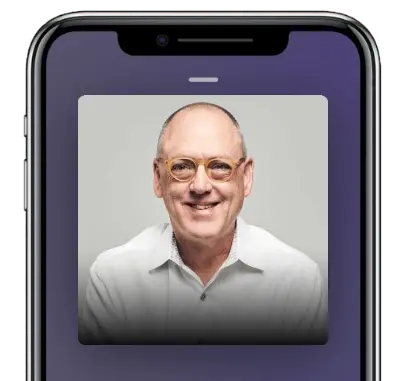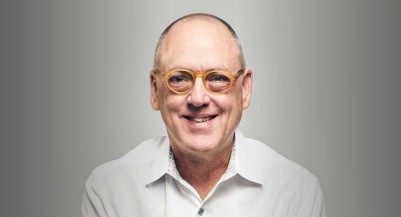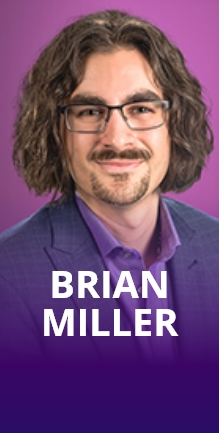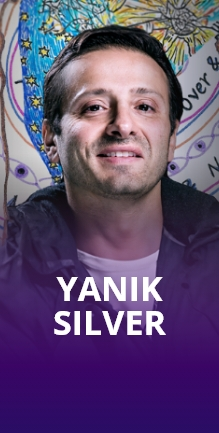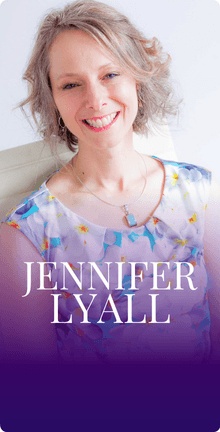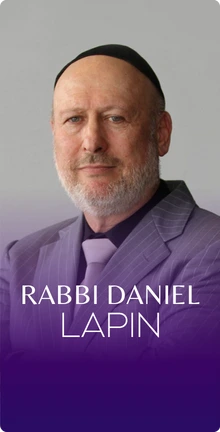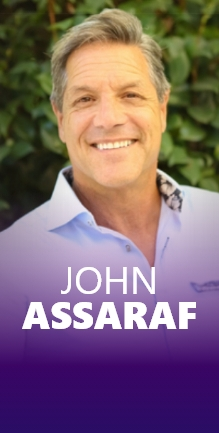In this Episode
- [04:01]David C. Baker discusses the importance of positioning and separating oneself from competitors in the industry.
- [14:00]Stephan and David share contrasting spiritual journeys, with David reflecting on his spiritual journey from religious belief to open-mindedness.
- [18:12]Stephan recalls a personal experience of synchronicity.
- [26:53]David emphasizes valuing intention and meaning in life, even if uncertain.
- [30:41]David describes his approach to decision-making.
- [35:33]Stephan recounts his spiritual journey from agnosticism to connecting with God and meeting his soulmate.
- [43:52]David reflects on the significance of exploring other cultures and seeking inspiration.
- [46:14]David explains the value of specialization and delivering expertise in a unique way.
David, it’s so great to have you on the show.
Thank you. I’ve been looking forward to this. It’s my first thing for the day, and I’m wide awake. I appreciate the invitation.
We know each other through Mitch Joel and his Facebook group for writers and published authors, Write and Rant. It’s awesome. There’s such great comradery and collaboration there, and you’re active there. I’m not very active. I try to stay off of Facebook, but I’ve seen some of your great contributions to that group, and I felt nudged from above to have you on my show. So here we are.
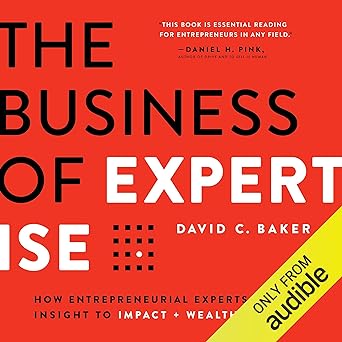
I do more ranting than writing in that group. You have fellow authors in there, so you understand that world. Were you in the Speak and Spill group at one point as well?
No, I met Mitch in the SEO and search marketing world 20 years ago. We attended conferences like Search Engine Strategies and Search Marketing Expo, and he was a speaker. I was a speaker. So, we shared some stages, panels, and other things.
Well, it’s nice to meet you finally.
It’s nice to meet you. You have a great name. So awesome. Let’s talk about what inspired you to write this book, which I love—the whole premise of it. I’m holding it in my hand now—Secret Tradecraft of Elite Advisors. This looks, dare I say, ‘badass.’ It’s something that some CIA agent would carry in their go bag.
Bug out bag. Right? Well, I didn’t think about this book for the first 25 years of my career. It occurred to me much later, and I realized that behind the book was a slow build. So, part of what I’ve said for most of my career is you need to be tightly positioned as a firm. The world is more complex. You simply can’t be an expert in everything. You have to narrow it down in some way. It could be vertically or horizontally. That’s a message everybody’s heard from me, but where do you go from there? After you have done that, what’s the next step in your professional development?
What kept occurring to me over and over again in sort of deeper levels of understanding, I guess, was this notion that you not only need to be focused, but the way you work with clients needs to be different as well because if you do your job in positioning, you still end up with competitors. In fact, it’s not a good positioning if you don’t have any competitors. We get excited when we think about positioning choices and say, “Oh wow, nobody is in this. I could own this.” No, you could be the very first person, but that’s unlikely. It’s more likely that other people thought about it, and it just wasn’t a good positioning. So you make the right choice for positioning, and you still have competitors. How do you separate yourself from those other competitors in the space? That’s where how you work with people has something to do with it. That was part of it. The other part, which is smaller but still important, was how you stay fresh and involved and push off some of the engagement that can overwhelm you as an advisor.
How you work with people has something to do with separating yourself from other competitors.
The book’s whole premise is that you start in certain ways, and then you keep developing more unique processes, which protects your practice of advice-giving and enables you to keep doing what you’re doing. If what you’re doing is valuable, everybody has a vested interest in you continuing to do it for quite some time. So, that was the theory behind it.
Do you have any experience or exposure to tradecraft, or did that idea just pop into your head in the middle of the night while you were having a dream?
Oh, no. Except I’m drawn to those TV shows and movies around that. I don’t think I’ve talked about this in any other interviews, but you would get the fact that when I was thinking about titling the book, I wanted a two or three-word phrase that I could own. So tradecraft, I couldn’t own that. Secret, I couldn’t own that. But I didn’t see much secret tradecraft out there, so I thought, “Ah, I could own Secret Tradecraft.” So the book went through about 30 different iterations of a title and then kind of landed on that. Some parts of the title make me uncomfortable in that it’s a very arrogant-sounding book, and I don’t mean it to be that way, but I just couldn’t get away from the opportunity to name it that. That’s what it is for me.
It doesn’t come off as arrogant. It comes off as exclusive.
We’ll buy that. I’ll take that.
Awesome. And so, what are some of the more surprising, counterintuitive, outside-the-box strategies you used to promote or launch that book?
Well, podcast interviews were a big part of it. I think people ought to write books for themselves, primarily, and then if it can have another purpose, that’s great. For me, I write because that’s the only way I can force myself to figure out what I think about something. But if you want the book to be a commercial success, you have to figure out how to promote it. Nowadays, and this is probably true over the last 15 years or so, publishers aren’t promoting books all that much except for the top ones on the list.
You’re responsible to the public for promoting your own book, regardless of whether you self-publish it using a hybrid publisher or a traditional publisher.
You’re responsible to the public for promoting your book, regardless of whether you self-publish it using a hybrid publisher or a traditional publisher. My main way of promoting the book to people who know me is through my email list. Thousands of people get a free weekly email with good insight every week. I can talk about the book there and then reach out to people I wouldn’t know or wouldn’t know me. Then podcast interviews are the way to do it for me. I’ve found many other little ways, but none are as efficient as that. Right.
Did you have an angle or a hook that stood out to the podcast host you were pitching, or was there something that helped you get the great podcast hosts’ attention and not just get on small or medium-sized shows?
Right. There is, actually, in it. I just stumbled on it accidentally; I think it’s my background. You may not know about that, and we haven’t talked about it, but my parents were medical missionaries. I grew up with a tribe of Mayan Indians in Guatemala, and we didn’t have running water or electricity. Mentioning that at the beginning of the bio tends to pull people in where they might just say, “Oh, here’s just another author. I wonder if he’s interesting to talk with.” Then, being an airplane helicopter pilot, I think, helps a little bit. Not nearly as much as that thing. That’s probably the little bit of the hook. It’s cheating in a way because it has nothing to do with the book, but I don’t know. I’ll take what I can get.
I could imagine you flying in your chopper, especially with the Secret Tradecraft book. You’re coming onto a big skyscraper on the roof, and bad guys are chasing you. You’ve got the Secret Tradecraft book, and you’re running into giving a talk.
Yeah. Like, “Okay, how do I escape from this? Maybe I should write it on.” I’m actually trying. I wrote six books. Only four of them are really any good. Fortunately, they are the most recent ones. But I’m actually trying to write a novel and finding it incredibly difficult.
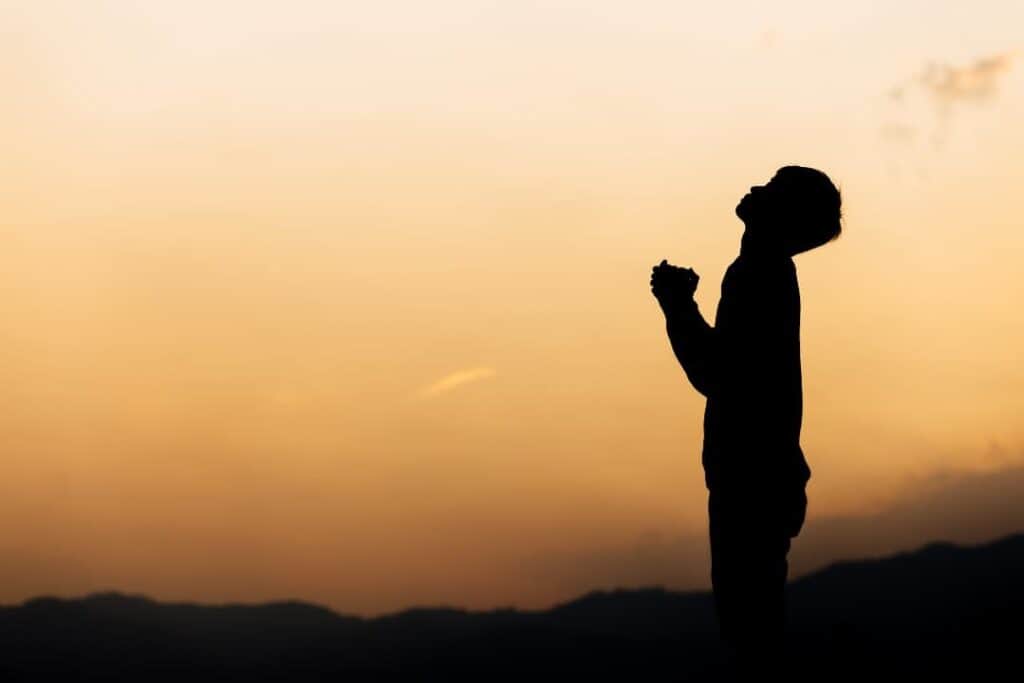
You’ve written quite a few really well-received business books. I’m sure you know the difference. I don’t know if you’ve tried writing a novel, but writing a business book is about research, tight organization, and bullet points, and you can’t do that in a novel. This needs to be a lot weird or more creative, and I’m struggling with how to do that. I’m really hoping that I can do it at some point. Have you tried to write a novel?
It’s not a novel, but working on a children’s book series, and of course, that’s fictionalized and has animals talking and doing kind of human things and learning lessons and stuff. It is a different kind of thing, for sure. Have you tried tapping into your intuition and unseen support team for guidance?
I have, and they haven’t been very helpful. I have this sense that if I really let loose and write what I want, it’ll be the only novel I write, and all of my friends and family will disavow me. I’m really cautious about getting this thing written. I’ll release it right before I die, so I can’t be around to see the mess that it creates.
Oh, my goodness. That’s hilarious.
The people who keep making courageous choices are usually going to do okay.
The one I’m working on is called Nashville Falling. It’s about a very successful consultant who became homeless in Nashville, where I live. So you can see the connection there.
What’s your connection with homelessness?
I don’t really have one, and hopefully, that remains that way.
But maybe after the novel’s out, right?
Yeah, that’s when it’ll happen. But philosophically, I’ve always felt like any one of us, no matter how successful we’ve been, by whatever measure, is two big mistakes away from big failure. People like you, your listeners, and so on are very brave. They make many courageous choices, some of which don’t work out. In fact, I am just convinced that the people who keep making courageous choices are usually going to do okay. But if you make two really bad choices in a row, that can take you down.
I’m always amused and listening to folks who are outside that entrepreneurial practice, who admire the entrepreneurial life but don’t understand how on edge it is all the time, from a money standpoint, from a mental health standpoint, from a physical health standpoint, and the terror that comes, especially if you have a team that is depending on you for a paycheck. I’ve always felt like, “Let’s not get too hot about our success.” Let’s realize it’s a combination of a lot of discipline, som and intelligence—it doesn’t have to be crazy intelligence and then a whole lot of luck. Let’s recognize that all those things wound together, creating what we view as successful people, and pride is sometimes a little misplaced. We can be happy with what we’ve done to create this, but let’s recognize that there are a lot of people out there who just haven’t had the same opportunities we have that would be just as successful as I had them and not think that we’re all that unique.
Wow. That’s an interesting way to look at the world. That’s really different from how I see things. I rely on my intuition a lot to get guidance on what to focus on. One of the things I do in my morning routine is ask God what I need to know or do today. I always get answers that I will journal, and then I take it very seriously because I know that this isn’t just my imagination.
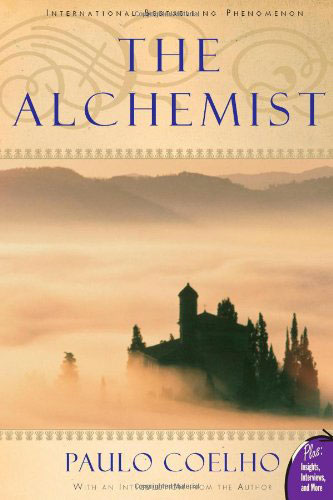
I’m not really waiting for the other shoe to drop or thinking of two failures in a row as, “I’m eating ramen noodles and living in a box.” I believe in the guidance that we all get. Nothing is random. Nothing is by accident. I don’t even believe in luck. I don’t believe in anything random. It’s all divinely orchestrated, and that is how I see things. I can’t say that I always saw it that way because before the two awakenings, I had one in India in 2012 and then a second in Israel in 2021. Before all that happened, I wasn’t connected to my intuition. I wasn’t connected to God or my higher power. I was agnostic. I was going through the motions but not living, and it was all perfect. It was all how it was meant to be. You don’t connect the dots except by looking backward. What are your thoughts about all that?
I would say my journey would be the inverse of yours because I grew up as a missionary kid—in a very religious setting. I have come to believe we were not deeply held. They were more inherited beliefs. So, as I started to sift through those and decide which ones were real and which weren’t, there was always this danger: when you lift up the tarp and see what’s underneath it, you might pitch the whole thing right. That was a fear, but it didn’t turn out to be real. I’m plagued by two things in the universe. One is that it seems utterly ludicrous and impossible that there isn’t something behind our world. This all happened by chance. It just seems like a big joke to me. There’s got to be something behind it. Every day, there’s so much evidence of that, and that’s on the one side. The other side is, well, whoever this is, why are they silent in a traditional sense? Now, they might not be silent, like speaking to you through intuition, but it would be so easy to give us some very specific sign. As I was going through all that now, I believe far fewer things than I did back then.
I believe things that I still believe very deeply, and I consider myself a very spiritual person, but not a religious person like I was before. By tying this with my upbringing, I understand the psychological safety it brings to believe that everything happens for a particular reason. But to me, that’s a belief that it’s possibly true. But I don’t know. I look at the people I grew up with who don’t have the same opportunities I do, and is there a reason I have the opportunities and they don’t? I don’t know. I like having this discussion because we ought to be open to learning. When I’m listening to you, if what you believe is different from mine, there shouldn’t be any defensiveness and just listening. Like, maybe you’re right. I’ve changed my mind on so many things over the years. It’s like, “Bring it on. Let me hear this.”
I appreciate the open-mindedness, candor, and vulnerability that you’re offering to my listeners as well as me. I’m curious to hear if there was any instance where you felt connected to something bigger, to the universal kind of infinite intelligence, the glimpsing, the bigger picture, getting some sort of download or sign.
We need to live with intention. We need to assume that what we do matters and that there's some fabric underneath that's weaving things together. Share on XI’ll preface this by saying that synchronicity is something that isn’t super woo-woo. I understand it’s like the scaffolding of the universe, of how it is meant to work when somebody says, “Oh, that’s crazy. How could that even happen?” It’s not crazy. It’s how the universe is designed.
Just an example of that that happened to me: I was guided to contact my father and reiterate my forgiveness of him for something in the past that I had already forgiven him for. But to relay another message in relation to that, he needs to forgive himself as soon as I hit the button to call him. We don’t talk that often. Maybe a half dozen times a year. The second I hit the button to call his home number, a text message came in from him, and he’d text maybe a few times a year. It was not just like within a minute or 20 seconds. It was the exact second I hit the button. He’s very skeptical. He’s not connected to the synchronicity, and all that is too woo-woo for him. But that was pretty undeniable because as soon as he hit the send message button, the call came in from me. That was pretty uncanny.
Here’s another pretty famous one. I learned this from the Wikipedia page of the book The Alchemist by Paulo Coelho. He wrote that book in 12 days, 150 million copies sold. From what you said, you and I get writer’s block on writing creative fiction. I’m struggling with the plot line for my children’s book series, which is the first children’s book I’m working on. So, to have the spigot turn on and have the entire book downloaded to him from above in twelve days, and not just to be a mediocre book but one deserving of 150 million copies sold, is astounding. I can’t deny the supernaturalness of that.

Well, that mirrors how I feel about the world—that there’s got to be some supernatural here. It just seems to use the word faith. It takes a lot more faith to believe there isn’t than that there is. To me, it’s so easy to fall into the idea that, like, God, something is going on here. But to answer your question, yes, it occurred in Pizza Hut, an odd place in Warsaw, Indiana, where I was at the end of my rope, feeling like I didn’t know what was real and what wasn’t real. I was having dinner with my wife, and it just hit me. It’s like, “Okay, this is what I’m designed for. I’m not headed into this field. I’m headed into this field. This is what I believe I’m on. This eternal search starts here.” I was in my twenties; we had no kids yet. Our first kid was born when I was 21. Oddly enough, at another Pizza Hut many years later, I asked my wife to marry me because the place where I asked her to make a reservation was closed unexpectedly. We had to go to next door to the Pizza Hut. Those two things are related, but I always just think about those two events in my life.
Why would you think those are not related?
I don’t know. Maybe they are. I know that we’re beings searching for meaning, so we’re on the lookout for any signals that there is meaning. I think that’s fantastic. My life ought to matter. I read or heard somewhere somebody said, “You ought to write your own obituary, and then you ought to live like it.” I really believe that’s great advice. But I’ve also made a big point about this in an early book on managing people in the creative field I serve—advertising, marketing, design, digital, and so on. They’re intent on changing the world, and I just have to smile.
If we want to impact our world, let’s just start with family, friends, and co-workers.
It’s like you’re running a 50-person firm. Ten years from now, your client will remember nothing about your firm or what you did for them. They won’t remember the names of anybody they worked with on the account team, but somebody who worked for you as a boss you manage will remember everything they learned about life from you and what you did for their career. The moments you had courageous conversations with them, the moments you screwed up and did the wrong thing and either apologized or didn’t. If we want to impact our world, let’s just start with family, friends, and co-workers, and then if the rest of it happens, fine.
These books are great to write. They help me clarify what I think, and I get feedback from people that they’ve been influential for them, and that’s fantastic. But it doesn’t really define my life. My life is more about the impact I have, at a really deep level, on people around me. I don’t even know why I’m off on this topic, but it’s interesting to me how we talk so much about our work lives, and we want to get famous, we want to do personal branding and all that stuff, which is useful. I don’t hate it, but it’s also artificial. You and I both know you’ve had people on your podcast who are really good people in life and then people who are just jerks. Either you know it or you don’t. It doesn’t really matter. It’s like, “Let’s get down to real living and thinking deeply about these things. Let’s not be afraid to have conversations that challenge us, and so on.” There you go.
What if nothing was a coincidence? What if Pizza Hut was exactly where you were meant to be?
It’s possible.
What if I paraphrase the definition of synchronicity from Carl Jung, but it’s the inner world syncing up with something in the outer world? You think about an old friend, maybe somebody you had a falling out with and haven’t spoken to in 20 years. As soon as you think about them, the phone rings, and it’s them. These sorts of things are not outlandish. As I said, my understanding is this is how the universe is designed to work. What if you, I, our listener, are the starring actors in our movie? Everybody’s watching, like you are Truman in The Truman Show, and you have a huge audience, and they’re rooting for you, whispering to you, like, “Take that chance. Say yes to that interview, start this book, get it done, publish it, talk to this publisher rather than this other one.” What if that is the true nature of reality instead of what we see as the three-dimensional reality? I’m sitting at a desk. That’s real. That’s hard, actually. If you look at it at a quantum level, it’s mostly space, but it feels incredibly real. But what if all that’s an illusion?
Yeah. Whether you’re saying it is true or not, we need to live that way. We need to live with intention. We need to assume that what we do matters and that some fabric underneath is weaving things together. Because humans without meaning, without intention, are just ugly, lonely people of despair. I want you to live that way without knowing for certain that’s true. At least I wouldn’t ask you to agree to that. But for me, that’s true. I was not afraid to examine some of the very specific beliefs that were a part of my upbringing that didn’t terrify me because I knew that underneath all of it, there was a net. I couldn’t fall so far that it would be destructive. I do think we ought to live that way. And what we do matters, right? What we do with neighbors matters. What I write in a book matters. You can also go to Amazon and read a review, but that’s not the case. I forget what the average review for this book is. I think it’s 4.6 or something. So you read the reviews that drag it down, and it’s one-star by somebody. Like watching an accident, right? Then you do it. It’s like, “Why did I do that? So stupid.” Then I turned on CNN.
Why would you do that?
Why would you watch any news? Why would you read Twitter? It’s sort of like, “I want to see accidents today.” But you just think, “Okay, there’s a story here that whatever this person’s facing, something is going on in their life, and I don’t understand it, and it’s okay.”
Just let the water roll off your back, and don’t think too much about it. I just closed a big conference we do every year, and I was the closing speaker, and I said to everybody, “You know what? I’m not a really great speaker. I think I’m a really good writer. I’m an average advisor. I’m not a great speaker.”
Recognize that we are all on a journey, and different things are appropriate at different points in that journey. Share on XSo you got people lining up after your talk saying, “I want to hire you as an average advisor because you really sold me.”
Yeah, right. But there’s something about it. I don’t know. I’m compelled to be honest about this stuff. So afterward, I got some feedback that that wasn’t really good. Well, I can’t take that personally. Like, I’m the one that said I wasn’t a great speaker.
You set the frame. You know, your words are powerful. So, yeah, you created your reality. That’s funny. You said something really profound about the net, and that reminds me of an adage that a leap and a net will appear, which is the exact opposite of what we were saying. Earlier in this conversation, we’re all just two mistakes away from disaster, so don’t get too high on yourself because you might just be knocked into the gutter. I’m paraphrasing, but the idea is so contrary to this idea that a net will always appear for you and that you’re safe. Are you vacillating between the two, or is it? Your soul knows that you’re safe, and your ego occasionally comes in to say, “No, a disaster is on its way. Just wait. The other shoe will drop.”
Well, it’s a definition of safety to me. So, the way I make decisions—I know this is very twisted. I wouldn’t recommend this to many people—I just imagine the worst thing that could happen if this goes bad. Then the second thing I say is, “Okay, could I take that? Would I be okay if that happened?” And the answer is always yes. And so, “Okay, go ahead.” Being homeless means I’m a failure commercially, but it doesn’t mean I’m a failure as a person. I mean, I’ve had lots of conversations with homeless folks, and many of those people are smart, really interesting, and have had a run of bad luck, and I don’t have any trouble reconciling those two thoughts.
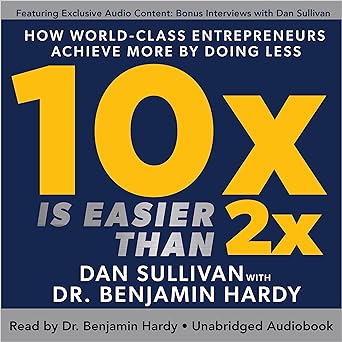
Have you done much best-case scenario thinking to the same degree that you make worst-case scenario thinking part of your habit?
For sure. Sometimes, it involves winning the lottery or speaking at something that I’ve always wanted to recognize how good a speaker I am anyway. Right. That has to come into play. Writing a book that really, really catches on and isn’t selling 20, 30, or 40,000 copies but millions of copies.
And like your novel.
Hopefully, my one and only novel will drop right before then.
Oh, come on.
We’ll see.
You know the story of Napoleon Hill and how outwitting the devil sat in a vault or something with the family for decades and decades because he was too afraid, and his family was too afraid of what people would think. And so it just didn’t start changing the world and making a difference in people’s lives until, what was it, 70 or 90 years after it was written? Which is a real shame.
No, I didn’t know that. I haven’t heard that. Yeah. Interesting. I’ll have to go look that up.
So, best-case scenario thinking is, I would suggest, a much better default than worst-case scenario thinking. What kind of outlandish, ridiculous stuff? Like, I’m going to win the lottery. But more like, what if two big accounts cancel at the same time or within a short period, and I’m overly reliant on them, and then I have to start laying off staff or whatever, and then all my best people leave, and then da da da da. That’s the worst-case scenario. What if I get two new accounts within the next month that are bigger than my two biggest accounts now?
What if that happens?
And what if you work on feeling the feelings of that having already happened? Because that’s the secret to the law of attraction. Most people don’t realize this, and I didn’t realize it for a long time—the law of attraction, you know, the movie The Secret and all that.
For example, if all you’d think about is bills, then that’s what’s going to show up in your mailbox. But if you’re focusing on the checks arriving, then more checks arrive, that works. But there’s this important nuance that you need to believe with absolute certainty that that’s happening and that it’s already happened and work on feeling the feelings of that having already happened. So you have to fast forward into the future and feel what it’s like to receive those checks in the mail to win that lottery or whatever. And, wow, you’re so grateful. You’re so blissed out and happy and trusting and just in your purpose and dharma, and you’re just like, wow, this is amazing. And you feel that now, before the checks have arrived? You feel that now before the novel has been published.
Yeah, there’s room for that. Right. But I’m also the guy flying a Helicopter.
That’s not going to daydream while you’re.
Well, I’m going to think about the failures of different components and how to deal with them. But I’m not going to look forward to it. I’m not going to assume it will happen, but I will be prepared for it. When I write a book on the financial management of a firm, I’m not going to write the book based on the feeling that all this success will come. I will define success for them and financial success and help them prepare the firm so that it doesn’t go away if certain things happen. Like, I want to be complete about the success and the failure of things. That’s how I think. But, from a friend’s or a universe’s or a God’s standpoint, I think there’s a lot of brilliance in what you were saying. But I’m also practical, so I must balance everything.
I’m not going to assume it’s going to happen, but I’m going to be prepared for it.
I think there’s a real need for intuitive people to bring the common sense practicality of the business world into what they do because they’re charging, like, $100 a session or whatever, and they should be charging ten times that and vice versa. The hardcore business person isn’t listening to that still, small voice because they don’t believe it’s real or it’s their higher power or their unseen support team. They just dismiss it, think that everything that happens is purely due to their own efforts, and are completely disconnected.
I was agnostic, like I said, up until age 42. I went to India on a Tony Robbins’ Platinum Partnership, and one of the monks that Tony had brought in touched me on the head and gave me a oneness blessing. I was blissed out, and everything was in technicolor, like a cartoon, like an LSD trip. I don’t know what that’s like, but everything was psychedelic. I had never done drugs before, but I felt so deeply connected to God and to everything that is. And everything changed.
Miracles started happening immediately, one after another. I met my soulmate two months later, 12 hours after I fervently prayed for her to show up in my life right away. I used those words when I was praying to God, “right away.” Twelve hours later, she was introduced to me by a mutual friend, and I knew within minutes that she was my soulmate. So, I got a ring and proposed to her nine days after we met. There’s a whole story there anyway, so I think there’s room for both. You said you’re spiritual, but you’re not religious. I think there’s room for both. I think that it’s not duality, one or the other. I feel like that’s missing for a lot of folks and a lot of companies, organizations, maybe, they say that their heartfelt or their values are one of contribution and customer focus and giving back and paying it forward, but there’s no supernaturalness to it. There’s no magic. It’s just kind of boots on the ground. “Let’s get this done.” You know, rubber meets the road, whatever the analogy is, and the sacredness and this and the synchronicities and the magic are missing. Maybe I’m not seeing it, but it’s there. I don’t know. What do you think?
We each find our own paths. And this works for you. Obviously, it works for you, and it would work for other people as well, but I would be hesitant to impose that on other people.
Ten years from now, your client will remember nothing about your firm, but they'll remember everything about what they learned about life from you and what you did for their career. Share on XEverybody has their own path, so it’s an invitation, not a requirement.
Yeah, an invitation to find something deeper in what you’re doing, why you’re doing it, and why it matters is really, really healthy. It can’t just be about money. Money is a wonderful thing because it enables more generosity. I exchange money for time. It allows me to think, be thoughtful, and spend a lot of wasted time working on books or developing concepts. But it’s more than just about money. I also don’t want to believe something that only makes sense here and wouldn’t make sense with this Mayan tribe of Indians.
To give you a very specific example, you hear a lot of this phrase. It’s set in many different ways, but you really need to find your purpose and love what you do, and then success will follow. It’s like, “Yeah, that’s a first-world approach. Of the four-point-some billion people in the world, at least a billion don’t have that available. They go out to the field, work at a subsistence level to raise crops, which they use, and then trade the excess for other things. And work is work for them. They can enjoy it. They could be a certain kind of people. Let’s not force our first-world way of thinking on everybody. That’s one thing that bothers me. I want to think about these things from a universal standpoint.
Money is a wonderful thing because it enables more generosity.
A universal commonality that might resonate with you. I experienced this, and I witnessed this when I went to a Mayan village just a few miles not even a year ago. It was in Belize as part of a maverick mastermind trip, and there was a cacao ceremony. I don’t know if she would be considered a shaman or medicine woman or what, but she was married to the chief of that village. And I saw her picking plants or leaves and things and asking the tree or bush or whatever she was picking from for permission. And that shows a level of connectedness, thoughtfulness, and foresight, which I was impressed by. That can be universally agreed upon for somebody who wants to be more in their purpose, more connected, receive guidance, insights, synchronicities, and so forth. And the terminology is used as a derision of being a tree hugger. It’s just bizarre to me. Don’t you want to be connected to the trees, nature, and all that is to be one? Because that’s the reality, and we’re all one. And yet, people use it as a knock-tree hug.
Yeah. Yeah. I wonder if we are as advanced as we think we are. There are still a lot of secrets hidden by tribal leaders. Why is it so easy to hand wave away whatever they’re doing when, in fact, our version of advanced society has lost a lot of that? I’ve always believed that you should see different parts of the world. I got in trouble in an earlier book, The Business of Expertise.
I said that everybody needs to go to a developing country to see for themselves the different life. And not that it’s some primitive life, it’s a different life. And there are values that they hold, which we shouldn’t have let go of right around some of that. And the notion that we need everything to be happy and successful is just bull. You’re just struck by how grateful and happy these folks are and that they have short lifespans and many untreated diseases. But it’s just that I’m just blown away. I am a us citizen. I didn’t come here to live until I was 18, and I love the United States. Whenever I come back, it’s like, “Oh, it feels great to be back here, but this is not the center of the world. We don’t have all the answers.”

Yeah. Amazing. What would be the thing that makes the difference for you in getting your novel done and out in the world? What’s the difference maker? What’s the insight or the transformation here that’s going to get you over the hump?
I go on four- or five-day writing adventures and just go somewhere alone. And so I just got back from one, and I’ve taken it in Ford. I went to the Dominican Republic. There’s this little hotel there I go to all the time. I’ve written all my books there, and it’s just. I don’t know, and there’s something magic about it for me. I can write there, so that’s where I go easy to get to. But what I need is the concept. I’ve started it four times in different directions, and I haven’t decided where to go with it yet. Once I know where to go, it’ll all come gushing out, so I’m sticking with it.
Maybe in twelve days.
That kind of blows me away. I can’t quite imagine that I didn’t even know about that story. I write faster than most people do, but it still feels very draining and painful, and I just can’t imagine what he must have been like after he finished that. Maybe he was very happy and relieved, but he probably couldn’t talk with anybody for 30 days.
That’s funny. How did you find that hotel in the Dominican?
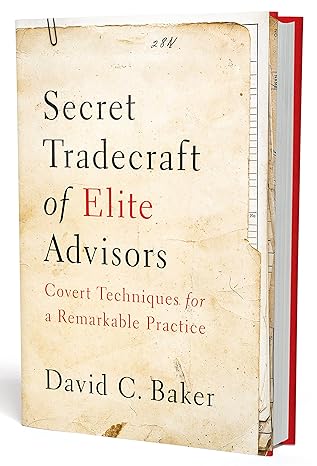
I go on photo ventures and adventures all the time by myself. I did a lot of photography and wanted to photograph the forts there. It’s where Columbus landed first. It’s the oldest church in the Western Hemisphere. There’s a lot there to photograph. I had just tried different hotels every time I went, landed on this one, and liked it. Something about it felt like the right shape and space, and within walking distance of some good restaurants, I could go down to the beach, this little cafe, and write. They had Wi-Fi to make it easy to do research and so on. So that’s how.
Okay, that’s cool. It was meant to be some sort of energetic portal or vortex or something going on there, too. What marketing advice would be needed to wrap up this episode? They went off on all sorts of wild tangents.
If we were to kind of provide a wrap-up of some very practical marketing and business advice from this episode, what would you say? What would you offer?
I’d just say two things. It’s important that you be specialized and that you have very, very deep expertise, which means, and that’s painful to do because it means that you might have opinions about lots of things, but you’re not going to have deep expertise worth a lot of money in lots of areas. That would be the first thing.
The second thing is how you deliver that expertise, which is also important. That’s what secret tradecraft is about, so they say. My podcast partner, Blair, ends. He says all the time that the sale is the sample. So, how an advisor sells you something is an accurate preview of what it will be like to work with that advisor. Moving away from the sale as a sample, experts must also deliver their expertise in a very specific way. And how they do it should be very intentional and different from how others do it. There needs to be a focus on protecting your, I guess, sort of the bubble you live in.
I always think of the, if you’re flying and at the beginning of every flight, they talk about how adults should stick their face masks on first before children. And taken out of context, that sounds like such a selfish thing to do because, just looking at it, why are they doing that? They’re not protecting their children first, right? There’s a very specific reason you do that. And advisors are. It’s not like you’re operating a machine, which I’ve also done in different jobs when I was before I got here. You’re using yourself, and that needs to be protected. Part of the process needs to end with moats around who you are so that you can deliver great advice indefinitely. And there’s not a certain amount of time where you’ve given all you can and can’t do it anymore. So, for those two things, your positioning needs to be tight, and the way you deliver advice needs to be very specific.
You’re not operating a machine, you’re using yourself, and that needs to be protected.
What would be a way for you to do it? You’re eating your own dog food in what you described.
I’ve gone down the path of heavily productizing my service offerings. So, there are fences around what I do and how I deliver that. A certain number of calls, a certain time on the calls, and a certain amount of follow-up guidance so that the workload doesn’t just creep into my personal life. That would be one way that I’ve done this right. And then also recognizing that there are different seasons of expertise building. In the early days, for instance, you might be invited to be on a panel, and that’s a good place to start. But then, after a certain point, you said, “No, I don’t do panels anymore. I’m just going to do breakouts by myself.” And then, at a certain point, you say, “No, no more breakouts. I’m only going to do keynote stuff.” And you could apply that to everything, like how you fly, the hotels you stay in, how you charge, what kind of groups you’re a part of. And so there’s just this natural recognition that all of us are on a journey, and different things are appropriate at different points. So that’s part of it, too.
Awesome. A book that might be helpful for you and for our listeners and that I’m in the course of reading right now is called 10x Is Easier Than 2x. It’s by Dan Sullivan and Benjamin Hardy. It requires a different way of being, thinking, and approaching problems and opportunities. It is easier if you’re willing to give up everything that’s just two times or less and clear your schedule and your to-do list of all those lower-value things that will only get you a doubling, which seems amazing, but that keeps you from the ten x things. So I don’t know if you’ve read the book or not.
I haven’t read that book. I know Dan. Dan has spoken at my events before, and I’ve been through the strategic coach program in Toronto. But I wasn’t aware of that book.
I highly recommend it. I just think that novel that you’re trying to write, it’s time, and that’s one of those 10x projects. It’s not a 2x, and it’s not yet another regular book. It could be the definitive book for you. It could be, you know, and then there are other ten x things you haven’t even dreamed of yet.
That’s true. I appreciate that thought.
All right, well, thank you so much, David. Thank you, listener. Take some action. We’ll catch you on the next episode. I’m your host, Stephan Spencer, signing off.
Important Links
Connect with David C. Baker
Books
Businesses/Organizations
Films
People


